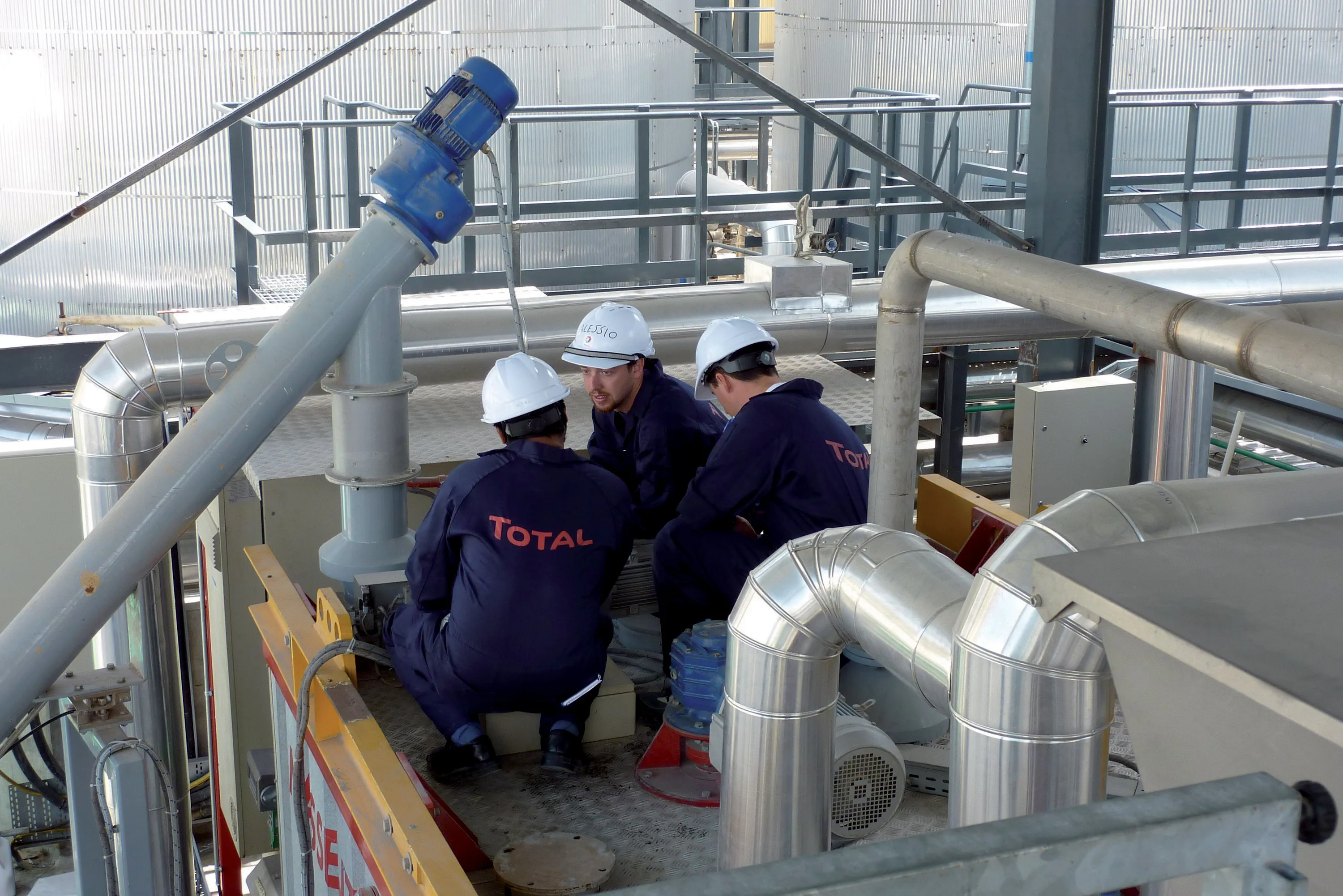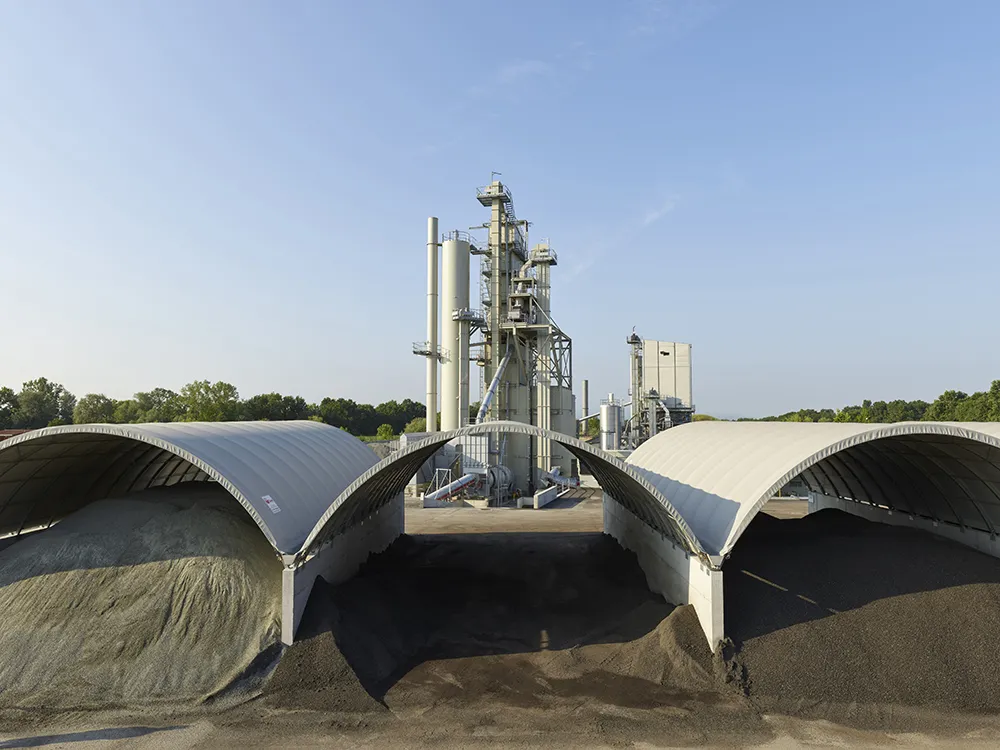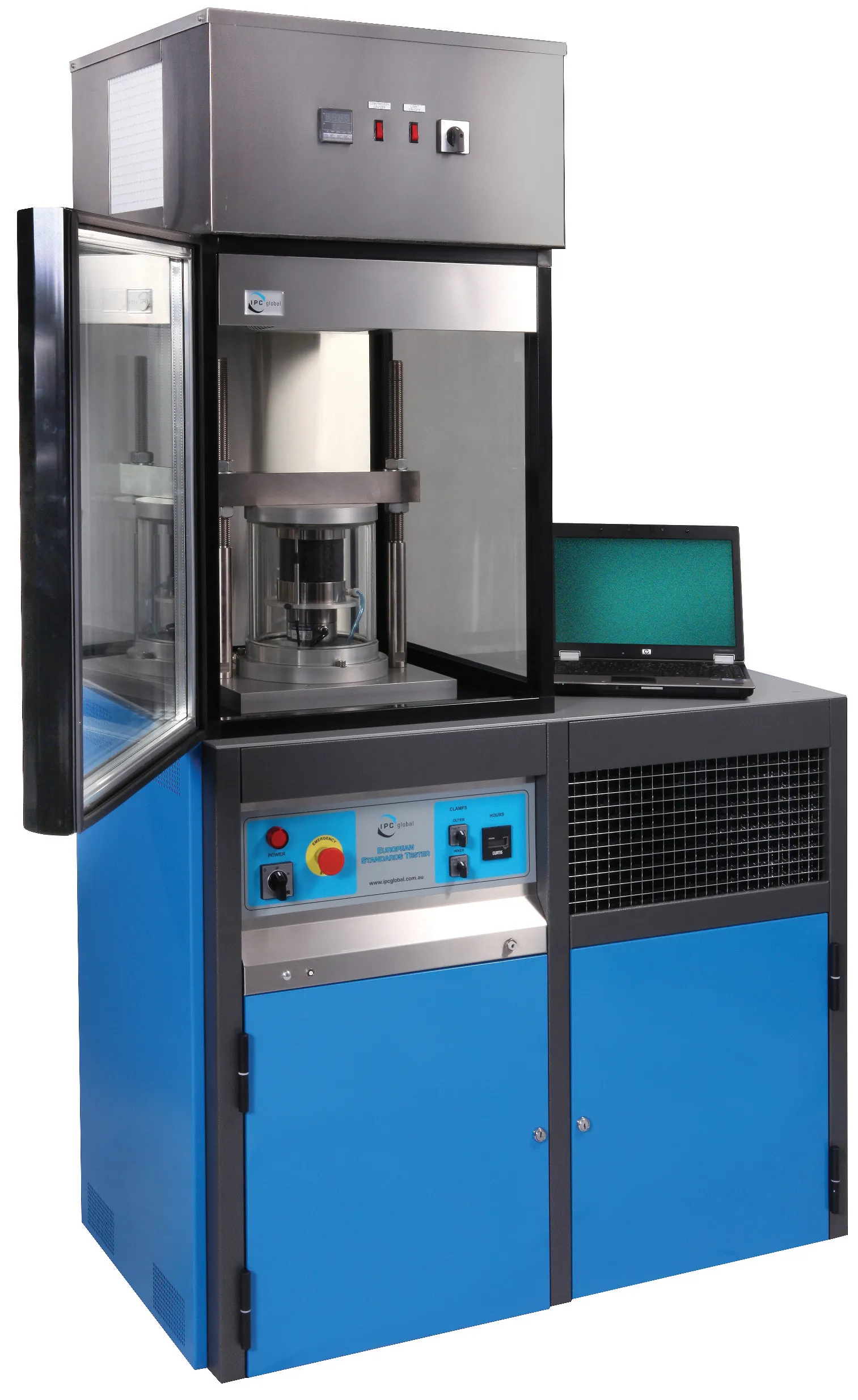A new PMB plant has opened in Dubai as part of the French Total Group's plans to expand in the Middle East. As part of the Total Group's plans for expansion in Middle East countries, a decision was taken in 2008 to include specific facilities dedicated to supply raw bitumen and to manufacture polymer modified bitumen (PMB).
February 7, 2012
Read time: 5 mins

A new PMB plant has opened in Dubai as part of the French Total Group's plans to expand in the Middle East
As part of theThe choice for the new bitumen terminal was located in the free zone of Jebel Ali port in Dubai (United Arab Emirates), and is managed by Total Middle East FZE, the subsidiary of Total Refining & Marketing - Africa and Middle East Division.
Consequently, an international survey was launched in May 2008 for the supply of a PMB batch production unit with a maximum throughput capacity of 20tonnes/hour.
After an evaluation of the different proposals arising from the survey, a special unit specifically designed and developed by Italian company
Specific review sessions between Total and Massenza have been dedicated to verify the alignment of the whole design of the plant with the PMB manufacturing process according to Total technology.
Finally, the overall project has been submitted to a HAZOP (HAZard and Operability) analysis, a systematic review aimed at discovering how deviations from the design intent may occur in equipments, actions or materials and whether the consequence of deviation may result in a hazard.
Plant/working process
The unit chosen is based on the Super Challenger plant, the most advanced and powerful model among the Massenza PMB mobile plants.To comply with the specific requirements of the STYRELF manufacturing, the basic layout has been reviewed and some solutions have been included through a joined cooperation between Massenza and Total.
"Because the STYRELF production process is covered by patents, no further details about the final layout of the plant and the specific solutions adopted can be disclosed," says Massenza. [Produced by the cross-linking of styrene-butadiene-styrene (SBS) elastomers, Total's STYRELF polymer modified range of bituminous binders is designed for high performance roads and in certain specific industrial applications.] The plant description here refers to the standard Super Challenger unit and the described working process is related to the conventional PMB production cycle.
The Super Challenger basically works with batch technology using the MULTIPASS system, with the special feature of a milling system comprising two high-shear mills in series able to increase the production capacity up to 25-30tonnes/hour.
The plant is entirely managed by a PLC with dedicated software to run the whole production process in a fully automatic way.
A customer-friendly interface with a 10" touch screen colour terminal allows an easy management by a single operator, who is required to set just a few basic parameters, such as batch size, polymer content and number of passages through the mills.
The bitumen and polymer batch blend is prepared in one mixer, where the bitumen is charged passing through a massic counter, which measures the bitumen mass and automatically stops the loading pump when the required bitumen quantity of the batch has been reached.
The polymer is loaded in the same mixer by a dedicated system able to support the use of 1,000kg big bags for polymer big bags discharge: the loading cells (loss-in-weight system) on the polymer hopper ensure an automatic control of the quantity added to the mix.
The mixers are equipped with a level state membrane to measure the bitumen quantity, prevent overfilling and allow the automatic start and stop of the special stirrers when the bitumen level is higher or lower in respect with the minimum set level.
Once bitumen and polymer loading inside Mixer 1 has been completed, the automatic cycle starts: the polymer/bitumen blend is passed through the two homogeniser mills and then sent to either Mixer 2 or directly to the PMB maturing tanks.
The special design of the Massenza milling system automatically adjusts the delivery to the feeding pump, keeping the mill always at its maximum output.
A special interface has been added between the Super Challenger plant's standard PLC and the Bitumen Tanks Management System by Total.
Before starting production, the operator has to select both the base bitumen tank and the PMB digestor tank and wait for the confirmation of these tanks' availability.
The Bitumen Tanks Management System performs a check on tanks' status (for example consistency between required base bitumen and bitumen level inside the selected bitumen tank, alignment between space available inside the selected digestor tank and expected amount of planned PMB batch) and a confirmation is sent back to the plant PLC allowing the start of the production cycle.
Plant start-up
The commissioning phase was performed recently by Massenza technicians under the supervision of Total PMB specialists from both the Total head office based in the French capital Paris-La-Defense, and CRES (Centre de Recherche de Solaize).First, a consistency check was carried out between the PMB plant and positioning of all ancillary equipments against the plan drawing.
All the bitumen and hot oil connections between storage tanks, PMB plant and digestor tanks have been inspected as well as all the electrical power connections.
Furthermore, specific checks and test runs have been made on all electrical motors, hot oil pump engines, air compressor, valves and mills, followed by an overall inspection of PLC touch screen to verify screens and data readings.
"Prior to the start of production tests, checks have been dedicated to control the calibration/readings of level state membranes, polymer hopper loading cells and temperature probes' output signals," says Massenza.
Finally, washing cycles of the overall system with pure bitumen have been performed and consequently the effective production trials have been initiated. Many different batches have been produced with increasing amounts of polymer content up to 9% to verify plant behaviour in demanding conditions.
During the start-up phase, a comprehensive training programme was attended by the local plant staff in order to get all the information and knowledge on the plant working process and the main equipment required for a smooth and safe operation.








